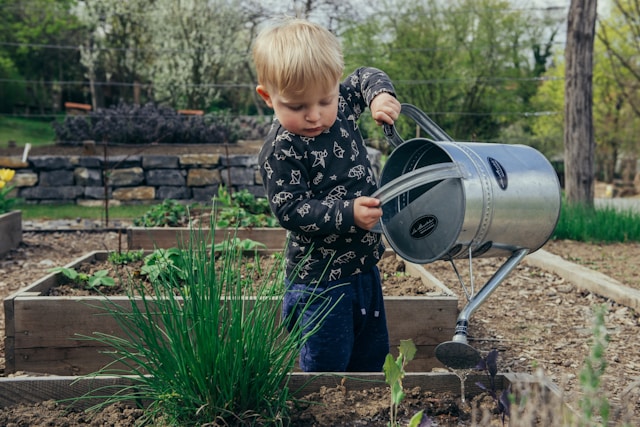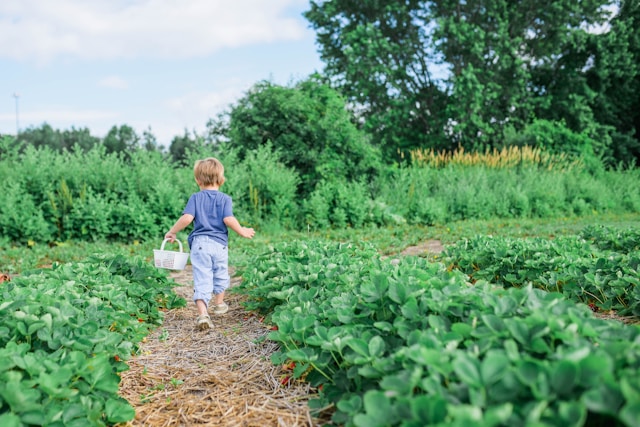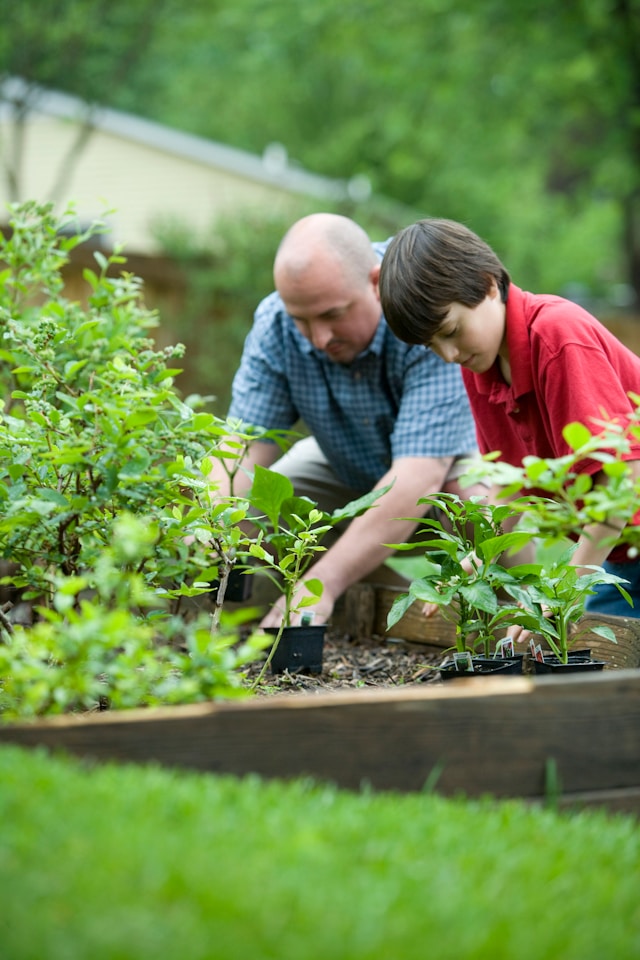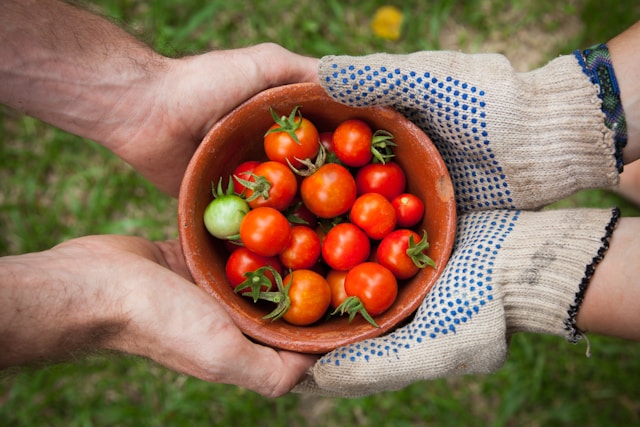In this post, we will talk about how kids can develop fine motor skills through gardening! Gardening provides a rich soil for children to cultivate their development, particularly when it comes to developing fine motor skills.
These skills, crucial in the growth of young ones, involve the use of small muscles in the hands and fingers to perform tasks such as grasping, holding, pressing, and using tools.
Not only does gardening engage kids in outdoor activity, but it also offers a variety of fine motor activities to strengthen these delicate muscles in a fun and nurturing environment.
Apart from fine motor skills activities that are used for professional therapies Introducing children to the nurturing world of gardening can have a significant impact on their fine motor skill development.
Through gardening activities like planting seeds, snipping herbs, or even handling delicate flowers and helping to maintain the garden, they learn to control their hand movements and gain precision.

Kids Can Develop Fine Motor Skills Through Gardening
The act of digging in soil, for example, can improve hand strength, while transferring seedlings encourages hand-eye coordination and dexterity.
In the garden, each task is an opportunity for kids to enhance their abilities, as they learn about the cycles of nature.
As children engage with nature, tasks such as squeezing a watering can or picking vegetables can improve grip and hand control.
This will prepare them for more intricate activities like writing or using utensils. Gardening becomes not only an educational experience but a foundational practice in a child’s developmental journey.
Understanding Fine Motor Skills
Fine motor skills involve the coordination of small muscles in movements—typically involving the synchronization of hands and fingers—with the eyes.
These dexterous movements are essential in accomplishing tasks ranging from writing to buttoning a shirt.

Importance of Fine Motor Development
Fine motor development is crucial for a child’s growth and independence. It enables kids to perform important daily activities such as using utensils, dressing themselves, and engaging in artistic endeavors.
Strong fine motor skills lay a foundation for academic achievements too, particularly in writing and using a computer.
The development in this area is not just about the actions but also about the learning and problem-solving abilities that come with mastering new tasks.
Gardening As A Tool For Motor Skill Enhancement
Gardening offers versatile opportunities for enhancing motor skills in children. As they engage with various plants and gardening tools, they develop hand-eye coordination, dexterity, and strength.
Grasping tools like trowels and rakes challenge and improve their control and use of fingers and hands. Planting seeds or tiny flower bulbs requires precision and a gentle touch, further refining their motor skills.
Gardening activities can be themed to captivate children’s interest and encourage repetitive practice, which is key to motor skill improvement.
As children interact with the garden, they also learn about the natural world, making gardening a comprehensive tool for both motor and cognitive development.
Gardening Activities to Boost Motor Skills
Gardening offers a rich tapestry of activities that can enhance a child’s fine motor skill development.
From the intricate work of handling seeds to the larger movements required for digging and raking, the garden is a natural playground for motor skill enhancement.

Starting with Soil and Seed Activities
For young gardeners, tasks such as filling pots with soil or placing seeds in predetermined spots can significantly improve their pincer grasp and hand-eye coordination.
Initiating this learning experience, starting with large seeds like beans, sunflowers, and peas is a good idea.
These seeds are easier for small fingers to manipulate, helping to build confidence. As children advance, smaller seeds like tomatoes and peppers offer more of a challenge, requiring greater precision and focus on fine motor movements.
Caring for Plants and Beyond
Beyond planting, ongoing care for plants cultivates fine motor skills through daily tasks like pinching off dead leaves or using trowels to add compost or mulch.
Such activities demand fine motor control and are a practical demonstration of the care a garden needs.
Engaging in tasks such as watering with a watering can or painting signs for different vegetables creates positive associations with fine motor activities and opens up a sensory experience as children touch different textures from soft leaves to gritty dirt.
Harvesting and Utilizing the Garden’s Bounty
The act of harvesting produces an opportunity for young children to learn about the environment and food sources while practicing their motor skills. Carefully picking vegetables like peas or lettuce requires delicate touch and control.
Kids are encouraged to gauge appropriate force when pulling veggies from the garden, another critical motor skill.
As toddlers transform into preschoolers, additional activities like using a spoon or stick to extract weeds or transplanting seedlings reinforce the lessons of gentle handling and precision necessary for successful gardening.

Gardening activities are beneficial for children’s fine motor skill development. They engage in tasks such as planting seeds and maneuvering small tools, which promote the coordination of hands, fingers, and wrists.
Introducing these activities into a child’s routine can support their motor skills, which are essential for tasks like writing.
Engaging in garden-based programs has been shown to have positive effects on visual-motor integration, instrumental in a child’s overall development.
I hope my post about how kids can develop fine motor skills through gardening has helped you in some way. If you have any questions, please leave them below! Thanks